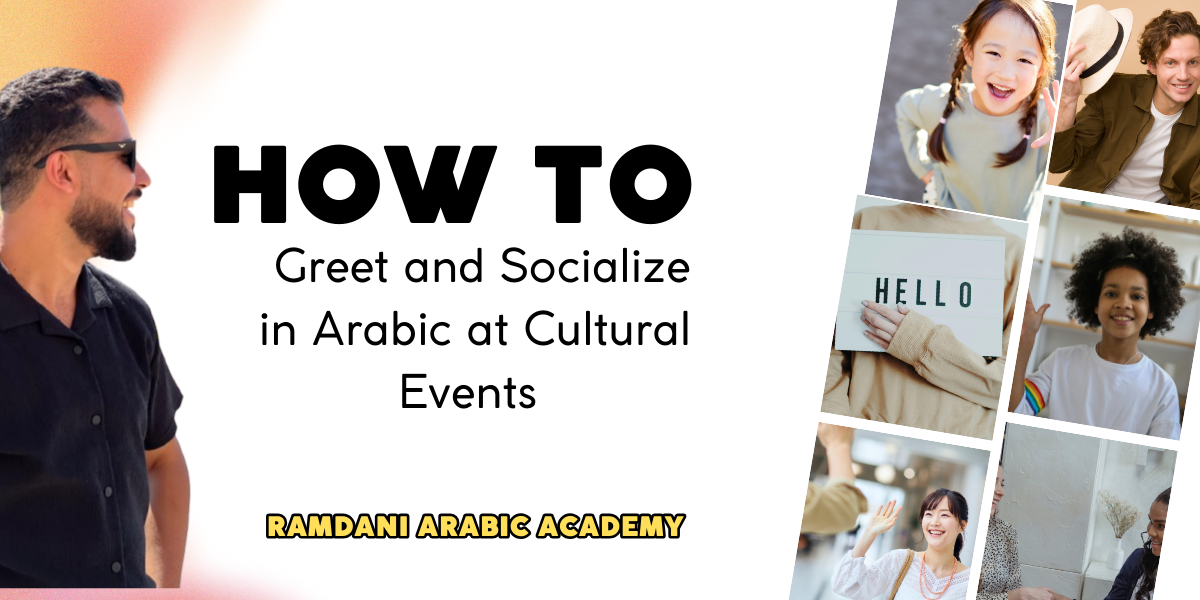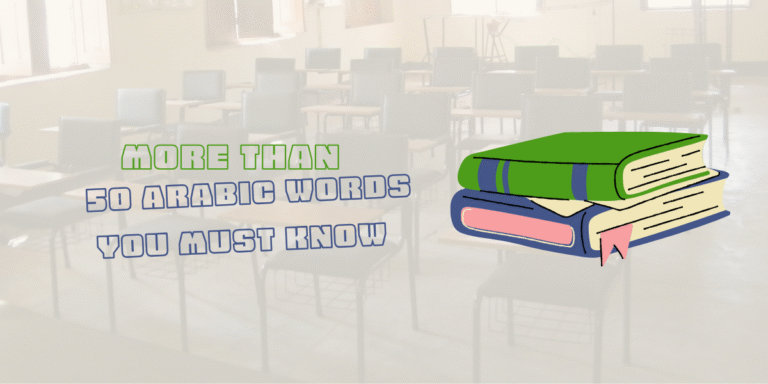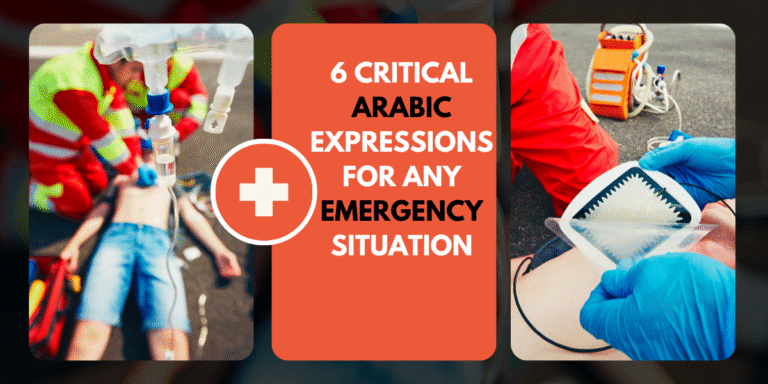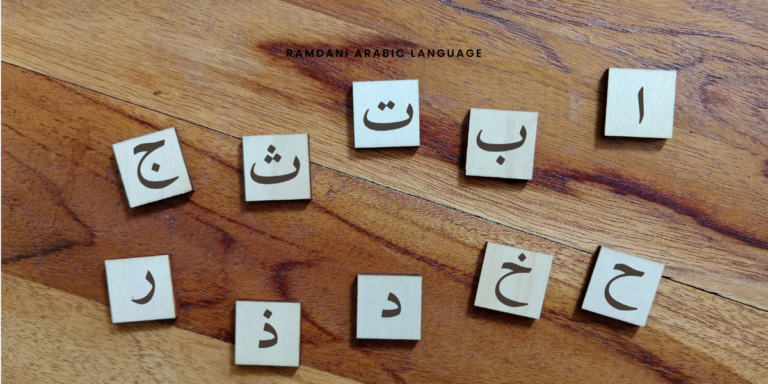How to Greet and Socialize in Arabic at Cultural Events 2026
Language is not just words. It is the way people connect. When you learn Arabic, you do not just memorize grammar or vocabulary. You learn how to live, speak, and interact like a native. One of the most important skills for any Arabic learner is knowing how to greet and socialize. Greetings are the first impression. They can open doors, create trust, and build respect. At cultural events, this becomes even more important.
Many learners focus on reading and writing but feel nervous when they meet Arabic speakers face to face. They worry about using the wrong phrase, saying too little, or being too formal. This is natural. Social interaction has layers. Each greeting can change depending on the time of day, the relationship, and even the region. A simple “hello” in English is not enough to navigate an Arabic gathering.
Arabic greetings are more than words. They include body language, tone, and sometimes ritual. You may see people shaking hands for a long time, hugging, or placing a hand on the heart. These actions carry meaning. They show respect and warmth. Learning them makes you part of the culture, not just a visitor.
Cultural events are special moments where language and tradition meet. Weddings, family gatherings, religious holidays, or community celebrations all have their own etiquette. People expect greetings that match the occasion. For example, during Ramadan you will hear “Ramadan Mubarak” or “Ramadan Kareem.” At Eid you will hear “Eid Mubarak.” Knowing these phrases shows you understand the moment. It helps you join the celebration naturally.
This topic matters because Arabic is spoken in more than 20 countries, and each country has its own style. The words may be the same, but the customs change. In the Gulf, greetings are often long and polite. In the Levant, they are friendly and warm. In North Africa, they may mix Arabic with French. Understanding these differences will make you more confident and more respectful.
Another reason to study greetings is that they are the key to making friends. When you greet someone well, they feel comfortable. They are more likely to talk with you, share their culture, and help you practice. If you ignore these social rules, you may seem distant or rude without meaning to.
This article will guide you step by step. You will learn common greetings, formal and informal, and how to use them in the right setting. You will also learn about body language, polite expressions, and conversation starters that work at cultural events. The goal is to help you not just speak Arabic but live it.
When you master greetings and social skills, you go from being a learner to being a participant. You stop watching from the side and start joining the circle. That is the real reward of learning Arabic.
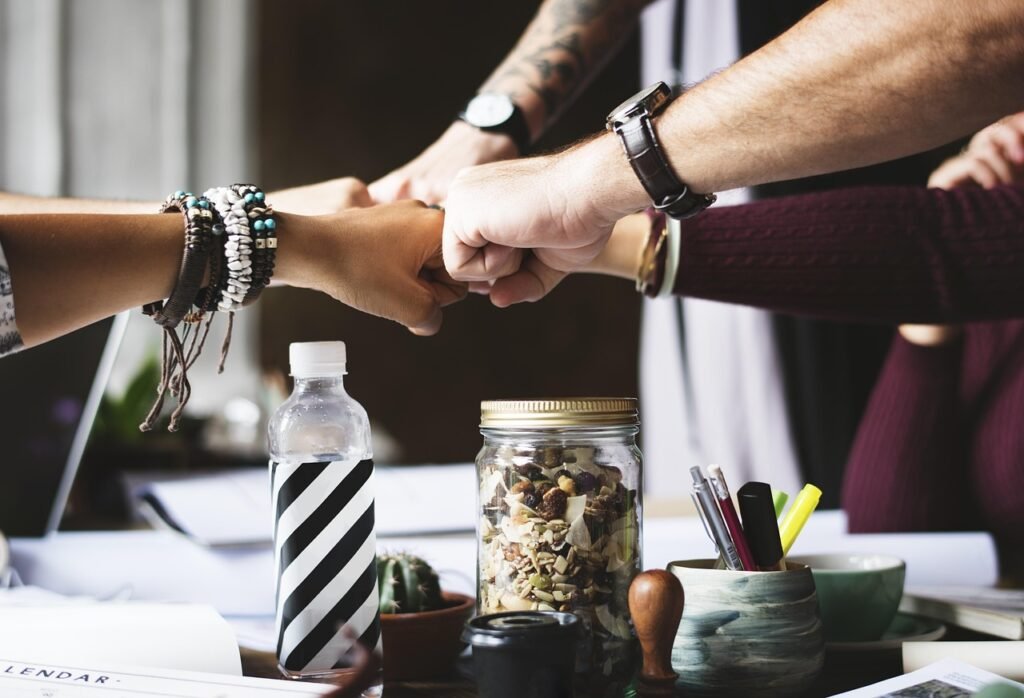
Part 1 – Common Arabic Greetings and Their Meanings
The first step to socializing in Arabic is to master the basic greetings. These are the building blocks of every interaction. They are simple, but they carry weight. When you greet someone in Arabic, you show respect for their language and culture.
1. The Universal Greeting: السلام عليكم
This phrase means “peace be upon you.” It is used everywhere across the Arab world. It is the safest and most polite way to greet someone in any situation.
- Response: وعليكم السلام “and peace be upon you too.”
- Use it when you meet someone for the first time, enter a room, or start a conversation.
- It is formal but warm. People will often smile when they hear it from a non-native speaker.
2. Casual Greeting: مرحبا
This means “hello” or “welcome.” It is friendly and informal.
- Can be repeated twice for extra warmth: مرحبتين
- Works well with friends, peers, or younger people.
- In some regions, it is used alongside a handshake or a light hug.
3. Good Morning and Good Evening
Time-specific greetings are common in Arabic.
- صباح الخير (sabah al-khayr) – good morning
- Response: صباح النور (sabah an-noor) – morning of light
- مساء الخير (masa’ al-khayr) – good evening
- Response: مساء النور (masa’ an-noor) – evening of light
These greetings are a great way to start polite conversation. They are used in workplaces, social gatherings, and even with strangers.
4. How Are You?
Arabs often ask about your well-being right after saying hello.
- كيف حالك؟ (kayfa haluk?) – how are you?
- The response is often الحمد لله (alhamdulillah) – praise be to God – even if life is difficult.
This is more than small talk. It is a way to check in on each other and show care.
5. Religious Phrases
In many Arabic-speaking communities, religion is part of daily life. Including a simple religious phrase can deepen the connection.
- ما شاء الله (mashallah) – said when praising something or someone
- إن شاء الله (inshallah) – said when talking about the future, means “if God wills”
- بارك الله فيك (barakallahu feek) – may God bless you
These phrases are not just for religious people. They are part of polite conversation.
6. Regional Variations
Arabic is spoken across many countries, and greetings can vary.
- In Egypt, “ahlan” is common and friendly.
- In the Gulf, you might hear “ya hala” as a warm welcome.
- In Morocco, greetings may mix Arabic with French: “salut” or “bonjour” followed by “labas?” meaning “are you well?”
Learning a few regional phrases makes you stand out and creates instant rapport.
7. Body Language and Physical Greetings
Words are just one part of the interaction. Pay attention to gestures.
- A handshake is common, but softer than in Western countries.
- Placing your right hand on your heart after a handshake shows sincerity.
- In many cultures, men greet men with a kiss on the cheek. The number of kisses can vary by country. Women may also greet each other this way, but physical contact between men and women depends on cultural norms.
When unsure, let the other person take the lead.
8. The Art of Repetition
Greetings in Arabic often last longer than in English. People repeat phrases, ask how you are several times, and inquire about family.
Example:
- A: السلام عليكم
- B: وعليكم السلام
- A: كيف حالك؟
- B: الحمد لله، كيف حالك أنت؟
This repetition is not small talk. It shows interest and politeness. Rushing through it can seem cold.
9. When Saying Goodbye
Part of greeting is also knowing how to end an interaction.
- مع السلامة (ma’a as-salama) – go with peace
- إلى اللقاء (ila al-liqaa) – until we meet again
- في أمان الله (fi aman Allah) – in God’s protection
Leaving politely is just as important as arriving politely.

Part 2 – Social Etiquette at Cultural Events
Knowing the words is just the start. The real challenge is using them in the right way at the right time. Cultural events in the Arab world are not only about food or music. They are about respect, family ties, and shared values. Every move you make says something about you.
1. Arriving at an Event
Punctuality can mean different things depending on the event.
- For formal occasions like business dinners or official receptions, arrive on time or slightly early.
- For family gatherings, weddings, or casual parties, it is normal to arrive later. Being fashionably late can even be expected.
When you arrive, greet the hosts first. If there are elders present, greet them before younger people. This shows respect.
Example: you enter a wedding hall. Start with السلام عليكم and a handshake or hand-on-heart gesture. Smile. If you know the family, congratulate them right away using phrases like مبروك (mabrouk) or ألف مبروك (alf mabrouk) – “a thousand congratulations.”
2. Greeting Everyone
At many events, you are expected to greet each person individually. This can take time but is a sign of good manners.
- Move from right to left around the room, shaking hands or offering a nod.
- If you cannot greet everyone at once, do it in smaller groups later.
- Avoid skipping anyone. Being selective can be seen as rude.
3. Handshakes, Hugs, and Kisses
Physical greetings vary by region and by relationship.
- Men usually shake hands with other men.
- Friends or relatives may hug or kiss on the cheek.
- The number of kisses depends on the country. In Lebanon and Syria, it is often three. In the Gulf, two or more.
If you are a man greeting a woman, wait for her to initiate. In conservative settings, a simple verbal greeting with your hand over your heart is safest.
4. During Religious Events
Events tied to religion have their own etiquette.
- During Ramadan, greet people with رمضان مبارك (Ramadan Mubarak) or رمضان كريم (Ramadan Kareem).
- Avoid eating or drinking in public during the day if you are in a Muslim-majority country.
- At Eid, say عيد مبارك (Eid Mubarak) or كل عام وأنتم بخير (kul ‘am wa antum bikhayr) – “may you be well every year.”
These phrases show you respect the occasion.
5. Table Manners and Food
Food is a central part of many events. Sharing a meal is a sign of friendship.
- Wash your hands before sitting down.
- Use your right hand when eating or passing food.
- Wait for the host to invite you to start.
- If you are served coffee, take it with your right hand and gently shake the cup when you are done to signal you do not want more.
Accept at least a small portion of food even if you are not hungry. Refusing completely can look unfriendly.
6. Conversation Topics
Small talk helps you connect with people. Safe topics include:
- Family (without asking personal questions about women in conservative settings)
- Food
- Travel
- Language learning
- Positive comments about the event
Avoid politics, religion debates, or personal income questions unless you know the person well.
7. Showing Respect to Elders
Respect for elders is a big part of Arab culture.
- Stand when an elder enters the room.
- Offer them the best seat.
- Listen when they speak and avoid interrupting.
- Use polite titles like “Haj” or “Sheikh” if appropriate.
This respect creates goodwill and makes a strong impression.
8. Gifts and Gestures
Bringing a small gift when visiting someone’s home is appreciated.
- Sweets, dates, or a box of chocolates are common choices.
- Avoid alcohol unless you know for sure the family drinks it.
When receiving something, accept with your right hand. Show gratitude and say شكرا (shukran).
9. Leaving the Event
Leaving politely matters as much as arriving politely.
- Inform the host before you leave.
- Thank them for their hospitality: شكرا على حسن الضيافة (shukran ‘ala husn al-diyafa) – “thank you for the good hospitality.”
- Say مع السلامة or إلى اللقاء to the people you spoke with.
Do not leave suddenly without saying goodbye. This can be seen as disrespectful.
10. Being Patient and Open
Socializing in Arabic can feel slow if you are used to quick interactions. People may ask many questions about you, your family, or your work. This is not intrusion but genuine interest. Answer kindly and show curiosity in return.
When someone repeats greetings or wishes you blessings, respond with equal warmth. The longer exchange builds connection.
Part 3 – Conversation Starters, Deepening Relationships, and Social Mistakes to Avoid
Knowing how to greet people is a good start. The next step is keeping the conversation going. This is where many Arabic learners feel nervous. They know how to say hello but not how to stay in the interaction. The good news is that most Arabic speakers appreciate effort and will guide you if you try.
1. Conversation Starters That Work
Simple, friendly questions are the best way to start.
- Ask about the event
- مثال: هل استمتعت بالحفل؟ (Did you enjoy the party?)
- This works at weddings, festivals, or community dinners.
- Ask about family in a respectful way
- كيف حال العائلة؟ (How is the family?)
- In Arab culture, family is central. Asking shows you care.
- Ask about food
- الطعام لذيذ جدا، ما اسم هذا الطبق؟ (The food is very tasty, what is this dish called?)
- People enjoy talking about their cuisine.
- Ask about origin
- من أي مدينة أنت؟ (Which city are you from?)
- This invites them to share their background and can lead to stories.
Keep your tone warm. Smile. Nod while listening.
2. Topics That Build Connection
Some topics make people open up quickly.
- Language learning
- Tell them you are learning Arabic. They will often slow down and help you.
- Travel
- Share places you have visited in their country or places you hope to visit.
- Traditions
- Ask about local customs, especially if the event is tied to a holiday or tradition.
- Compliments
- Compliment the host, the food, or the decoration. Make it sincere.
Example: البيت جميل جدا، شكرا على دعوتي (Your home is very nice, thank you for inviting me).
3. How to Listen Actively
Listening is as important as speaking.
- Make eye contact without staring.
- Lean slightly forward to show interest.
- Repeat key words they say to confirm you understood.
- Use short phrases like صحيح؟ (Really?), ممتاز (Excellent), جميل (Nice) to keep the flow going.
People notice when you listen carefully. It builds trust.
4. Humor and Lightness
Many Arabs enjoy humor in conversation. Light jokes can break the ice, but be careful with sarcasm or dark humor. Avoid joking about religion, politics, or family.
Safe humor includes funny travel stories, language mistakes you made, or playful comments about the event.
5. When You Don’t Understand
Do not panic if you miss a word.
- Politely ask them to repeat: ممكن تكرر لو سمحت؟ (Could you repeat, please?)
- Or ask them to speak slowly: ممكن تتكلم ببطء؟ (Could you speak slowly?)
Most people are happy to adjust and explain.
6. Deepening Relationships
The more you interact, the stronger the connection.
- Remember people’s names and use them.
- Follow up after the event with a message: شكرا على أمسية رائعة (Thank you for a wonderful evening).
- Accept invitations when possible. Hospitality is important in Arab culture, and refusing too often may close doors.
If someone invites you to their home, it means they trust you. Bring a small gift and show gratitude.
7. Social Mistakes to Avoid
Some actions can harm relationships even if you do not mean to.
- Ignoring elders
- Always greet and respect older people first.
- Refusing food repeatedly
- Say no politely if you cannot eat, but take at least a small portion when offered.
- Talking too much about money
- Asking about salary, rent, or prices can feel intrusive.
- At a wedding or official event, use full greetings, not just “hi.”
- Bringing up sensitive politics
- Avoid debates unless you know the person well and the setting is private.
- Using too casual language in formal settings
8. Dealing with Group Conversations
Sometimes you will find yourself in a group. It can feel fast and loud.
- Wait for pauses before speaking.
- Smile and nod when others are talking.
- Add short comments to show you are engaged even if you do not fully follow.
People will notice your effort and include you.
9. Handling Compliments
If someone praises you, respond with humility.
- Say شكرا (thank you) or هذا لطف منك (that’s kind of you).
- Some people say ما شاء الله as a response to avoid sounding proud.
Do not reject the compliment harshly. That can seem ungrateful.
10. Ending Conversations Gracefully
When you need to leave or move to another group, excuse yourself politely.
- تشرفت بالحديث معك (It was an honor talking with you)
- أتمنى أن نلتقي مرة أخرى (I hope we meet again)
This leaves a good final impression.

Advice
Learning how to greet and socialize in Arabic is more than learning phrases. It is a skill that grows with practice. The more you use it, the more natural it feels. Every cultural event, every gathering, is a chance to connect with people and improve your Arabic at the same time.
Practical Advice for Learners
- Practice daily
Repeat greetings out loud each morning. Say السلام عليكم when you meet someone, even if it is just online. - Watch real interactions
Look for videos of weddings, celebrations, or Arabic TV shows. Notice how people greet, how they stand, how they smile. - Join real events
If you live in a city with an Arabic-speaking community, visit cultural festivals, mosques, or language meetups. Even short interactions will boost your confidence. - Be patient with yourself
Mistakes will happen. You might forget the right response or mix words. Most people will appreciate your effort and encourage you. - Build relationships slowly
Focus on one or two phrases first. When they become natural, add more. You will slowly build a full set of social skills. - Stay curious
Ask people about their customs. Each country has its own way of greeting. Showing interest makes conversations longer and richer.
Why Social Skills Matter
Arabic is a language of connection. Greetings, smiles, and polite questions make people open up. They make learning faster because you get more chances to practice. You stop translating in your head and start thinking in Arabic.
Social skills also help you understand culture on a deeper level. You learn what respect looks like, what friendship sounds like, what generosity feels like. These lessons stay with you far beyond the classroom.
About Ramdani Arabic Academy
At Ramdani Arabic Academy, we believe language learning is not only about reading books or memorizing rules. It is about living the language. Our courses are designed to help you speak with confidence, greet people correctly, and join conversations naturally.
We offer:
- Step-by-step video lessons for beginners and advanced learners
- Articles that explain grammar, vocabulary, and culture
- Practice exercises to build speaking and listening skills
- Cultural insights so you know how to act at events, not just what to say
Our goal is to help Arabic learners around the world feel at home in the language. We focus on real-world Arabic, not just textbook sentences.
About the Author
My name is Ramdani Mohamed, founder of Ramdani Arabic Academy. I created this platform to make Arabic learning simple and practical. I have worked with learners from many countries who faced the same problem: they could read Arabic but felt shy when speaking it.
Through my lessons and articles, I show them that confidence comes from small daily practice, real conversations, and learning how to greet and respond in the right way. I believe every learner can become part of the Arabic-speaking world, not just a visitor.
Final Thought
Arabic is a language of warmth and hospitality. When you master greetings and social etiquette, you are no longer standing on the edge of the culture — you are inside it. The next time you go to a wedding, a dinner, or a festival, take a deep breath, greet people with a smile, and let the conversation flow.
Your journey does not stop here. Keep practicing, keep listening, and keep connecting. If you need guidance, Ramdani Arabic Academy is here to support you with lessons, resources, and community so that Arabic becomes part of your daily life.

